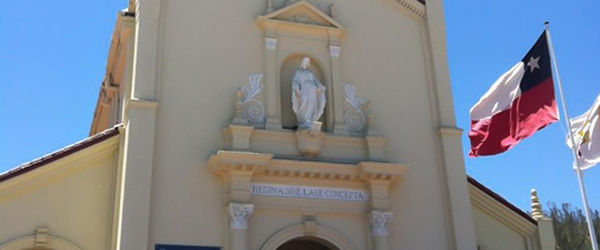This is a big week for our local Church. Beginning this Thursday, March 22, we will be hosting our 45th annual Los Angeles Religious Education Congress at the Anaheim Convention Center. This amazing four-day event will attract more than 40,000 catechists, religious educators and teachers from across the country.
This is the biggest gathering of its kind in America and probably in the world. There are about 280 workshops and talks this year — on topics ranging from spirituality and music to biblical studies and catechesis.
The REC is a great service that our Archdiocese offers to the Church in our country. I’m grateful to Sister Edith Prendergast, RSC, director of our Religious Education Office. She and her fine staff have dedicated themselves to this event for nearly 25 years.
To me this Congress is important because catechesis is at the heart of the Church’s mission.
Jesus commissioned his Church to make disciples in all nations and to teach all men and women to live by what he commanded. So from the start, religious education has included everything that we do in the Church to make disciples, to strengthen the living bonds of communion and community that we have in the Church, and to help us to live our faith in the world.
Some of the earliest statements we have about what religious education means are found in the writings of the apostle St. John. In fact, biblical scholars think that his Gospel was written in part to offer a catechesis on the meaning of the sacraments. They think the same thing was true about the letters of St. Peter.
Near the end of his Gospel, St. John tells us it was “written that you may believe that Jesus is the Christ, the Son of God, and that believing you may have life in his name.”
Again, at the start of his first letter, he writes: “That which we have seen and heard we proclaim also to you, so that you may have fellowship with us … with the Father and with his Son Jesus Christ. And we are writing this that our joy may be complete.”
At the heart of religious education is always this encounter with Jesus Christ.
That’s what makes our Christian faith unique. Christianity is not a philosophy of life or a collection of ethical principles. Christianity is a relationship of love with a divine Person, Jesus.
That means that religious education can never only be about learning “facts.” It is about growing in our love for Jesus and our belief that he shows us God’s loving design — for our lives and for our world.
Catechesis is “mystagogical.” That means it tries to take us to a deeper knowledge of the mysteries we celebrate in the sacraments. It tries to help us truly live the divine life of grace that we receive in the sacraments.
To do this kind of work, takes a special person. It takes a “servant’s heart.” It requires a spirituality that is rooted in a simple, unselfish desire to do God’s will and to serve his purposes.
Catechists need to be engaging and imaginative in proclaiming the faith in this culture. But they don’t bring any teaching of their own. They are here to teach Jesus Christ.
When we are teaching in the Church, we can never substitute our own “version” of Jesus or offer watered-down or partial versions of his teachings. Because only the truth — and the whole truth — about Jesus can save us and set us free.
Jesus himself said that he only taught what he had learned from his Father. He said: “My teaching is not mine, but his who sent me.” And his words should be impressed on the hearts of every true catechist.
In our day, there are many competing “gospels” and contrary messages. And our secular culture seems more set against religious viewpoints than ever before.
In this culture, our religious education more and more must include a new “apologetics.” We need to make a new “case” for Jesus Christ and his Catholic Church. We need to communicate the joy of knowing Jesus and the power and beauty of our Catholic way of life. We need to be able to show our neighbors how the Gospel provides real answers to the problems we face in our lives and in our society.
Let’s pray for one another this week and let’s pray for the renewal of religious education in our times.
And let’s ask the patroness of our great archdiocese, Our Lady of the Angels, to help us to live the truths we teach more deeply and to be better witnesses to the joy, hope and truth of our Catholic faith.
Follow Archbishop Gomez at: www.facebook.com/ArchbishopGomez.
{gallery width=100 height=100}gallery/2012/0323/gomez/{/gallery}

